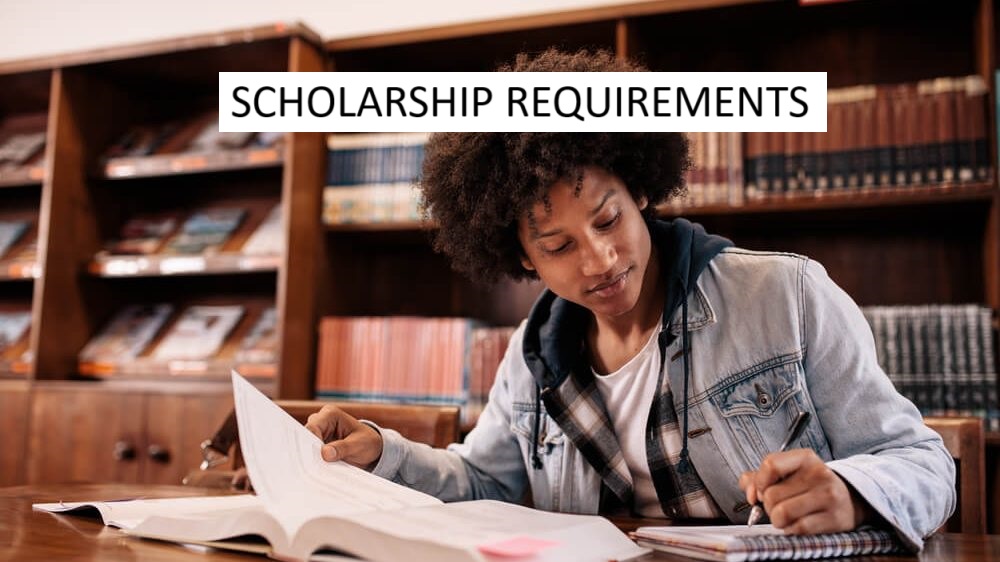As the cost of higher education keeps on rising, scholarships have become a crucial asset for some students. However, scoring a scholarship isn’t generally as straightforward as finishing up an application. Every scholarship has its own arrangement of requirements that candidates should meet to be qualified. Understanding what these requirements are can assist students with better exploring the scholarship application process and increasing their possibilities of getting financial help for their education.
- Prologue to scholarships and for what reason they’re significant for students
Scholarships are a significant asset for students hoping to further their education without piling up monstrous measures of student credit obligation. In this day and age, where the cost of higher education is continually on the rise, scholarships can provide the financial help needed to make going to college a reality for some students.
In any case, what precisely are scholarships, and for what reason would they say they are so significant? Basically, scholarships are financial honours given to students based on different rules, like academic achievement, community association, or financial need. Not at all like student advances, scholarships don’t need to be repaid, making them an appealing choice for students hoping to finance their education without causing extra obligations.
Scholarships assume an urgent role in making higher education accessible to a great many students. For some people, the cost of going to college can be restrictive, driving them to do without chasing after a degree out and out. By giving financial help to students who might not possess the ability to pay for college all alone, scholarships assist with making everything fair and guarantee that higher education is available to all who wish to seek it.
As well as assisting students with managing the cost of college, scholarships can likewise essentially affect a student’s general academic achievement. Research has shown that students who get scholarships are bound to graduate on time and with higher GPAs than those who don’t get financial aid. This is probable because scholarships can ease a portion of the financial pressure related to going to college, permitting students to zero in on their examinations and less on how to pay for their education.
Besides, scholarships can furnish students with important opportunities for personal and expert development. Numerous scholarships accompany extra advantages, for example, networking opportunities, mentorship programmes, or entry-level positions, which can assist students with acquiring important experience and associations in their chosen field. These opportunities can be important for students hoping to kick off their professions and put themselves in a good position after graduation.
In general, scholarships are an imperative asset for students hoping to further their education and accomplish their academic goals. By providing financial help, scholarships assist with making higher education open to all students, no matter what their financial conditions. Furthermore, scholarships can emphatically affect a student’s academic achievement and provide important opportunities for personal and expert development. To put it simply, scholarships are not just significant for assisting students with paying for college, but additionally for getting them in a good position in their academic and expert undertakings.
- GPA and academic performance requirements for scholarships
With regards to procuring scholarships, perhaps the most common necessity that students should meet is maintaining major areas of strength for a point average (GPA) and showing strong academic performance.
Numerous scholarship programmes have minimum GPA requirements that students should meet to be qualified for nsideration. These requirements can differ depending on the scholarship; however, they frequently range from a 3.0 to a 4.0 GPA. A few scholarships might have higher GPA requirements for additional cutthroat programmes or fields of study, so students should cautiously survey the particular requirements for every scholarship they are keen on applying for.
Notwithstanding GPA requirements, scholarship programmes additionally ordinarily think about the general academic performance of students. This can incorporate factors, for example, class rank, state-sanctioned test scores, and the difficulty of the classes taken. Scholarship committees are in many cases searching for students who have tested themselves academically and have demonstrated a guarantee to their examinations.
Students who have succeeded in cutting-edge situations (AP) or praise classes might enjoy a benefit with regards to procuring scholarships, as this demonstrates a readiness to blow away in their academic interests. Essentially, solid performance on state-sanctioned tests, for example, the SAT or ACT, can likewise be a factor in determining a student’s qualification for scholarships.
At times, scholarship programmes may likewise consider other academic achievements, for example, cooperation in academic contests, research projects, or extracurricular activities connected with the student’s field of study. These extra accomplishments can assist with exhibiting a student’s energy and devotion to their chosen academic way, which can reinforce their application for scholarships.
Students must keep major areas of strength for a record all through their secondary school or college profession to be serious about scholarships. This implies keeping fixed on their examinations, searching out testing academic opportunities, and endeavouring to accomplish their best in every aspect of their academic life.
For students who might be battling academically, it means a lot to search out assets and backing to assist with working on their performance. Whether it’s gathering with educators for additional assistance, taking part in coaching programmes, or growing better study propensities, there are various ways that students can work to improve their academic performance and increase their possibilities of acquiring scholarships.
Generally, GPA and academic performance requirements are key variables in deciding eligibility for scholarships. By keeping areas of strength for a record, testing themselves academically, and searching out extra opportunities to succeed in their examinations, students can build their possibilities of procuring scholarships to assist with subsidising their educational goals.
- Extracurricular activities and community contributions that might be required
Notwithstanding academic achievements, numerous scholarships also consider a student’s contribution to extracurricular activities and their effect on the community. These activities can range from taking part in sports groups, clubs, charitable efforts, temporary jobs, or leadership positions inside the school or community.
Extracurricular activities demonstrate a student’s capacity to deal with their time really well, work well with others, and show responsibility and devotion to their interests. They can likewise showcase a student’s leadership capacities, critical thinking skills, and innovativeness. Numerous scholarship committees view participation in extracurricular activities as a method for checking a student’s capability to succeed academically as well as in their future vocations.
Community association is another significant viewpoint that scholarship committees might search for in candidates. This can incorporate charitable efforts with local organisations, gathering pledge occasions, community administration projects, or any drive that has emphatically affected the community. Showing a guarantee of rewarding others and having an effect on the planet is profoundly esteemed by scholarship committees.
While assessing extracurricular activities and community inclusion, scholarship committees are searching for higher expectations without compromise. There’s no need to focus on what number of activities a student is engaged with, but rather on the profundity of their inclusion and the effect they have had. Students who demonstrate a veritable energy for their activities and a genuine obligation to serve others are probably going to stand apart from scholarship committees.
At times, scholarships may explicitly expect candidates to have a specific number of long stretches of community administration or a leadership position in a club or association. Students should cautiously survey the requirements of every scholarship they are applying for and guarantee they meet the measures.
Regardless of whether a scholarship unequivocally requires extracurricular activities or community inclusion, having these experiences can, in any case, fortify a student’s application. It shows scholarship committees that the student is balanced, drawn in, and devoted to personal and academic development.
Conclusion
To showcase their extracurricular activities and community contributions, students ought to provide nitty-gritty data in their scholarship applications. This can incorporate depictions of their jobs and obligations, the effects they have had, any honours or acknowledgments they have received, and how these experiences have moulded their personal and academic goals.
By and large, extracurricular activities and community contributions are significant parts of a scholarship application. They demonstrate a student’s capacity to offset academics with different responsibilities, showcase their leadership and teamwork skills, and feature their commitment to having a beneficial outcome for their general surroundings. By effectively taking part in activities that line up with their inclinations and values, students can improve their chances of getting scholarships and encouraging their education.



